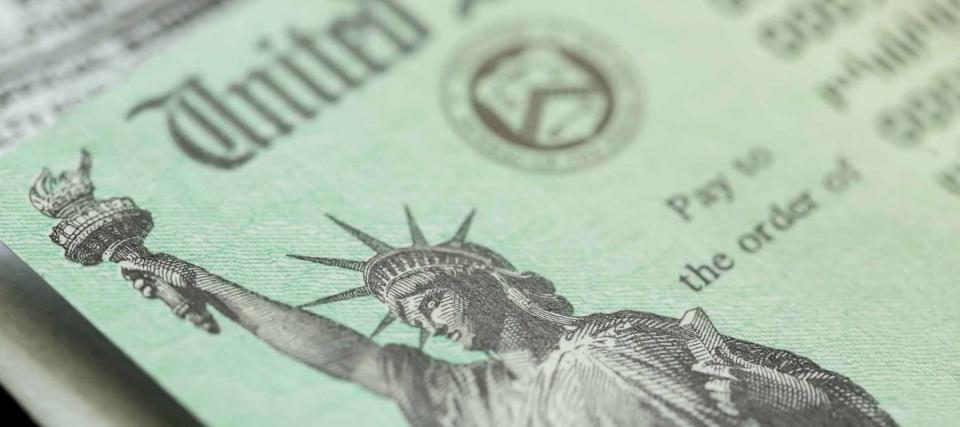Already got your third stimulus check? A bonus amount may be on the way

The IRS says it’s distributing a new batch of stimulus checks from the COVID rescue bill President Joe Biden signed in mid-March — and this phase might provide you with extra money if you already got a relief payment in the latest round.
Some 700,000 Americans are receiving $1.2 billion in what the tax agency calls "plus-up" payments. You may get one if you previously didn’t qualify for the entire $1,400 from the latest stimulus check, the third one of the pandemic.
What's a plus-up? Sort of a stimulus check "booster shot."
Will you get a stimulus check 'plus-up'?

As the IRS explained in a news release on Thursday, these plus-up payments provide "supplemental" support for Americans whose third stimulus check had been based on information from their 2019 income tax returns, but who are now in line for a new or larger amount based on their 2020 returns.
When it started processing the latest relief payments, the IRS had to rely on the most recent data in its system. If you hadn’t filed your 2020 taxes before the third round of stimulus checks was set in motion, the IRS would have used your 2019 return to determine how much money you were eligible for.
But maybe you earned less last year than you did in 2019, because of the COVID crisis. If you've recently filed your 2020 taxes, you may be eligible for a bigger stimulus check now — so you'll receive a plus-up to make up the difference.
Individual taxpayers whose returns show adjusted gross income (total income minus some deductions) up to $75,000 qualify for the full $1,400 stimulus check. The same goes for couples who file jointly and have AGI of as much as $150,000.
How else might you get a stimulus plus-up?
You may also be eligible for a plus-up payment if you:
Are a married couple who files jointly, have now filed your 2020 tax return, and it includes a new child or dependent.
Are in a couple who filed separately last year, but you've since gotten married and now file jointly. (But note, you qualify for the full third stimulus check only if your joint, adjusted gross income is under $150,000.)
Were not required to file a tax return for 2019 and instead used a nonfiler tool to claim your first stimulus check last year.
Are a veteran receiving disability compensation from the Department of Veterans Affairs and weren’t required to file a tax return for 2019 but have now submitted one for 2020.
The 700,000 plus-up payments represent just a fraction of the 161 million stimulus checks that have gone out since March 12. They total approximately $379 billion funneled to Americans in just under six weeks.
What if you need cash but aren’t getting a plus-up?

If you’re not getting any extra stimulus support and need more cash, don't panic. Here are a few ways to create some financial breathing room for yourself.
If you've been relying on your credit card during the pandemic, you've got plenty of company. Credit and debit card spending increased by 45% in March compared to the same month last year, says data from the Bank of America. Slash your credit card debt — and pay it off sooner — by rolling your balances into a debt consolidation loan with a lower interest rate.
Because so many drivers have been using their vehicles less frequently during COVID, some car insurance companies have been offering discounts. If your insurer isn’t cutting you a deal, it's time to find a policy at a better price. You also could save hundreds on homeowners insurance by shopping around for a lower rate.
If you’re a homeowner and haven't refinanced your loan in the last year, you could be missing out on some truly game-changing savings. Mortgage data and technology provider Black Knight estimates that 13 million homeowners still have the potential to save an average $283 a month with a refi.
Don’t think your financial well-being is entirely dependent on cutting costs. You can generate extra income in the stock market — and you don’t have to be rich. One popular app helps you invest your "spare change” from everyday purchases into a diversified portfolio.

 Yahoo Finance
Yahoo Finance 